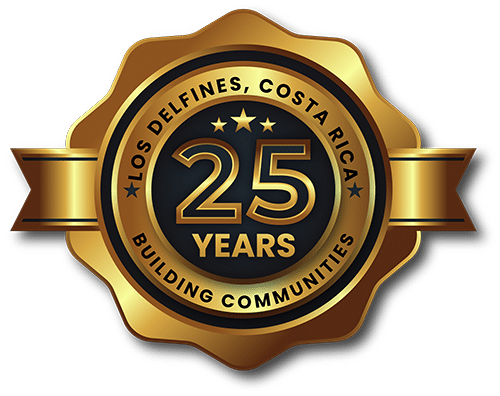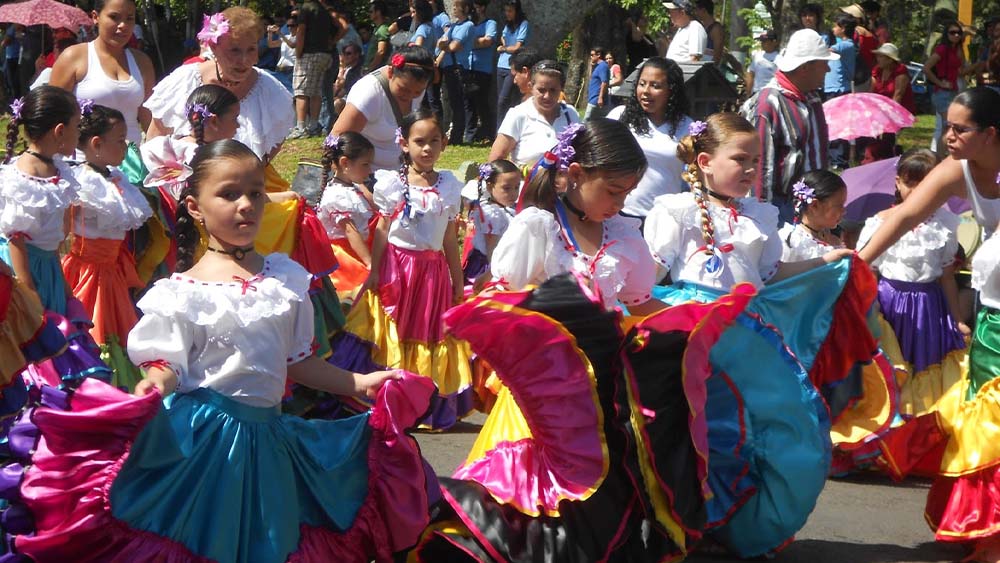If you’ve ever considered trading Canada’s harsh winters for tropical warmth, moving to Costa Rica from Canada might be the perfect choice. With its stunning beaches, welcoming communities, and affordable cost of living, Costa Rica has become a top destination for Canadians looking for a fresh start.
But is moving to Costa Rica a good idea?
Whether you’re relocating for work, retirement, or adventure, this guide will help you understand the key aspects of life in Costa Rica and what to expect when making the transition.
What you will find in this article:
- Reasons for moving to Canada from Costa Rica
- What you need to know about residency
- How the cost of living is different in Canada and Costa Rica
- Moving to Costa Rica with pets
- Whether or not you need to learn Spanish
- Understanding the culture before you move
- Why it is important to visit Costa Rica before you move there
- The importance of working with transition specialists and other professionals
- Things you need to do in Canada before making the move
- Commonly asked questions about moving from Canada to Costa Rica
KEY TAKEAWAYS
- Enjoy a lower cost of living compared to Canada, particularly in areas like the Nicoya Peninsula.
- Affordable daily expenses, housing, and services contribute to a budget-friendly lifestyle.
- Canadians can stay up to 180 days as tourists without a visa.
- For longer stays, there are many different residency options for pensioners, property buyers and more.
- Handle essential tasks in Canada before moving, including transition advice, tax planning, banking, and medical checkups.
- Carefully consider what belongings to bring, as shipping can be expensive.
- Pets can be brought with proper health documentation.
- Costa Rica has a high quality and lower cost healthcare system, both public and private.
- Learning Spanish is highly recommended for smoother daily interactions and cultural integration.
- Be prepared for “Tico Time” and a more relaxed approach to schedules.
WHY CANADIANS ARE MOVING TO COSTA RICA
Many Canadians who move to Costa Rica will have a different reason for doing it. But some of the most common draws are:
1. ESCAPE THE COLD
One of the biggest motivators for Canadians moving to Costa Rica is the weather. Costa Rica enjoys year-round warm temperatures, with averages ranging between 25-30°C (77-86°F). Whether you’re drawn to the beaches, mountains, or rainforests, the climate offers an ideal setting for outdoor living.

Costa Rica has two main seasons:
The Dry Season (December to April): This is the most popular time for expats and tourists, as the weather is sunny and rainfall is minimal. It’s an excellent time for outdoor activities, beach days, and exploring nature without interruption.
The Wet Season (May to November): Also known as the “green season,” this period brings more frequent rainfall, especially in the afternoons. While some areas experience heavy showers, the Nicoya Peninsula generally sees less rain compared to other parts of the country. The landscape becomes lush and vibrant, and it’s a great time for those who enjoy fewer crowds and lower travel costs.
2. LOWER COST OF LIVING
While expenses vary depending on location and lifestyle, many Canadians find that daily costs in Costa Rica are significantly lower than in Canada. Groceries, dining out, and services such as housekeeping or gardening are more affordable, and property taxes are minimal compared to those in Canada.
3. HIGH-QUALITY HEALTHCARE
Costa Rica offers both public and private healthcare options, with medical services that are high-quality and cost-effective. Many Canadians moving to Costa Rica opt for private healthcare, which provides faster access to specialists and modern facilities.
4. A SLOWER, MORE RELAXED LIFESTYLE
Costa Rica’s “Pura Vida” philosophy promotes a laid-back, stress-free way of life. With a focus on nature, community, and well-being, many expats find they enjoy a healthier and more fulfilling lifestyle after relocating.
THINGS TO CONSIDER BEFORE MOVING FROM CANADA TO COSTA RICA
Before moving to Costa Rica, there are some important things that every Canadian needs to consider:
1. RESIDENCY REQUIREMENTS
Canadians can stay in Costa Rica for less than 180 days without a visa. All you need upon arrival is a valid passport and proof that you will be living in less than 180 days, such as a return flight ticket or proof of travel to another destination.
While it is possible to leave and re-enter Costa Rica to obtain a new tourist stamp, you are not guaranteed another full 180 days upon return. Immigration officials at the border will determine the length of your new stay.
STAYING LONGER THAN 180 DAYS
The good news is, for those planning a long-term move, there are many ways to apply for residency. Popular residency options include:
- Pensionado: For retirees with a pension of at least $1,000 USD per month, you can apply for Pensionado residency. This pension can be from the government, business, social security or another fixed income plan.
- Rentista: The Rentista residency option is for individuals who can show a steady income of at least $2,500 USD per month for two years.
- Inversionista: If you are investing at least $150,000 USD in Costa Rican real estate, you will be eligible for temporary residence. This process is generally straightforward and means you can live in Costa Rica without updating your tourist stamp.
COST OF RESIDENCY APPLICATION
Applying for residency in Costa Rica comes with various costs, depending on the category you choose. Generally, it costs between $1,500 and $2,500, to obtain residency status plus any additional costs incurred to authenticate and translate documents.
While you can stay in Costa Rica while you await the decision on your application, you want to be sure you take the necessary steps to re-enter, if you leave for any period of time. This may include re-entering under tourist status or providing additional documentation to ensure your residency application is up to date.
2. COST OF LIVING DIFFERENCES
Costa Rica is well-known for its lower cost of living compared to Canada, making it an attractive destination for those looking to stretch their budget without sacrificing quality of life. While the overall cost of living depends on factors like location and lifestyle choices, many expats find that their day-to-day expenses in Costa Rica are significantly lower than in North America.
Within Costa Rica, the Nicoya Peninsula stands out as a particularly cost-effective option. Unlike highly commercialized tourist hotspots such as Tamarindo or Escazú, the Nicoya Peninsula offers a more balanced and budget-friendly lifestyle.
AFFORDABLE DAILY EXPENSES
Many day-to-day expenses, such as groceries, dining out, and household services, are more budget-friendly in Costa Rica than in Canada. Fresh, locally sourced produce, seafood, and meats are widely available which can help reduce food waste, and local markets provide an affordable way to shop for healthy, high-quality ingredients.
LOWER HOUSING COSTS
The Nicoya Peninsula offers a range of real estate options, from beachfront homes to more secluded mountain retreats. Compared to high-priced urban areas in Canada, purchasing a home here can be much more accessible, with lower property taxes and fewer maintenance expenses.
SAVINGS ON SERVICES & UTILITIES
Household services such as housekeeping, gardening, and home maintenance are significantly more affordable than in Canada, allowing many expats to enjoy a higher standard of living. Utilities, such as electricity and water, can vary based on usage, but the year-round warm climate means lower heating costs and opportunities to use solar energy for added savings.
TRANSPORTATION & LIFESTYLE COSTS
Public transportation is inexpensive, and owning a vehicle can be more cost-effective than in Canada due to lower insurance rates. Additionally, many expats find they don’t need a car in certain communities, as everything they need is within walking distance or accessible by bicycle.
A BALANCED, COST-EFFECTIVE LIFESTYLE
The Nicoya Peninsula promotes a healthy and active lifestyle, reducing the need for expensive entertainment or high-cost conveniences. With access to stunning beaches, outdoor activities, and fresh food, many expats find they spend less while enjoying a richer, more fulfilling way of life.
3. MOVING FROM CANADA TO COSTA RICA WITH PETS
Bringing your pet to Costa Rica is a straightforward process. With proper planning, your furry companion can transition smoothly to their new home. Here’s what you need to know:
NO QUARANTINE REQUIREMENTS
One of the biggest advantages of moving to Costa Rica with a pet is that there is no quarantine period for dogs and cats. As long as you meet the necessary health and documentation requirements, your pet can accompany you immediately.
HEALTH CERTIFICATE & VACCINATIONS
Before traveling, pet owners must obtain a veterinary health certificate from a licensed Canadian veterinarian. This document must confirm that the pet is in good health and up to date on vaccinations, including rabies. The certificate then needs approval from the Canadian Food Inspection Agency (CFIA) before departure.
AIRLINE TRAVEL & REGULATIONS
Different airlines have varying pet travel policies, so it’s essential to check the specific requirements for your chosen carrier. Some airlines allow pets in the cabin, while others require them to be transported in cargo. Booking well in advance and ensuring your pet has a comfortable, airline-approved travel crate can make the journey easier.
ADJUSTING TO THE CLIMATE
Costa Rica’s warm climate can be an adjustment for pets, especially those used to colder temperatures. To keep them comfortable:
- Provide access to fresh water at all times.
- Ensure shaded areas for outdoor pets.
- Schedule walks during cooler times of the day, such as early morning or evening.
VETERINARY CARE & PET-FRIENDLY LIVING
Costa Rica has many veterinary clinics, particularly in expat-friendly areas like the Nicoya Peninsula, where high-quality pet care is readily available. The region offers plenty of spacious, pet-friendly homes with large outdoor areas, ideal for dogs to roam. Ticos (Costa Ricans) generally have a strong appreciation for animals, making it a welcoming place for pet owners.
4. LEARNING SPANISH
While many expats live comfortably in Costa Rica without being fluent in Spanish, learning the language will significantly improve your experience. Spanish is the official language, and while English is spoken in tourist areas and by some locals, daily interactions — such as grocery shopping, banking, and medical visits — are much easier with a basic understanding of Spanish.
HOW MUCH SPANISH DO YOU NEED?
The amount of Spanish you need depends on where you plan to live. In popular expat communities, English is widely spoken, but in more rural areas, basic Spanish skills will be necessary. Even a limited understanding can make a difference in daily interactions.
HOW TO LEARN SPANISH BEFORE & AFTER MOVING
- Online Courses & Apps: Duolingo, Babbel, and Rosetta Stone offer convenient ways to learn Spanish before your move.
- Community Classes: Many towns in Costa Rica offer affordable Spanish classes specifically designed for expats.
- Immersion: Engaging with locals, watching Spanish-language TV, and practicing daily will help you pick up the language quickly.
- Hire a Tutor: Private lessons can be an effective way to fast-track your learning.
Speaking Spanish will not only help you navigate daily life but also allow you to connect more deeply with the culture and community.
5. UNDERSTAND THE CULTURE
Moving to Costa Rica from Canada means adapting to a new way of life. While the country is known for its friendly people and laid-back lifestyle, there are cultural differences that can take some adjustment.

TICO TIME & THE CONCEPT OF “MAÑANA”
Costa Rica operates on a more relaxed schedule than Canada. “Tico Time” means that things don’t always happen exactly on schedule. Whether it’s waiting for an appointment or expecting a repair service, patience is key.
The word “mañana” (which means “tomorrow”) is often used as a vague answer for when something will happen, but it doesn’t always mean the next day. Understanding this flexible approach to time will help you avoid frustration.
COMMUNICATION STYLE
Costa Ricans tend to be warm, polite, and indirect in their communication. Unlike the directness common in Canada, Ticos often avoid confrontation and prefer a more diplomatic approach. A simple “yes” doesn’t always mean agreement—it can sometimes be a polite way to avoid saying no. Building good relationships and being patient with communication differences will go a long way.
THE PURA VIDA LIFESTYLE
“Pura Vida” (literally translated as “pure life”) is more than just a phrase—it’s a mindset. It reflects the Costa Rican philosophy of gratitude, simplicity, and enjoying life at a slower pace. Expats who embrace this way of thinking often find the transition smoother and more fulfilling.
Adjusting to cultural differences takes time, but an open mind and willingness to adapt will help make your move a positive experience.
6. VISIT BEFORE YOU MOVE
Relocating to another country is a big decision, and visiting Costa Rica before making the move can help ensure it’s the right fit for your lifestyle. Spending time in the country allows you to experience the culture, explore different regions, and get a sense of what daily life is really like.
EXPERIENCING THE DAILY REALITIES
Visiting allows you to experience things that aren’t always apparent in travel brochures, such as:
- Traffic and road conditions
- Local grocery shopping and food costs
- Internet reliability and utilities
- Social atmosphere and expat community presence
AVOIDING CULTURE SHOCK
Visiting first can help you prepare for cultural differences. Adjusting to things like “Tico Time,” different banking systems, and local bureaucracy is easier if you’ve already had some exposure.
A trial visit can help you make informed decisions about where to live and what to expect, ensuring a smoother transition when you move permanently.
7. WORK WITH A PROFESSIONAL
Moving to another country involves complex legal, financial, and logistical challenges. Working with experienced professionals can make the process easier and help you avoid costly mistakes.
TYPES OF PROFESSIONALS TO CONSIDER
- Real Estate Agents – Buying property in Costa Rica comes with its own rules and procedures. A knowledgeable agent can help you find the right home and navigate property laws.
- Relocation Consultants – These specialists assist with transitional services. This can include everything from residency advice and finding schools for children to setting up utilities and securing healthcare.
- Immigration Specialists – A local expert can guide you through the residency application process, ensuring that your paperwork is correctly completed and filed.
- Legal Advisors – Costa Rican laws and regulations may differ significantly from those in Canada. A lawyer can provide essential guidance on contracts, business ventures, and tax obligations.
BENEFITS OF PROFESSIONAL GUIDANCE
- Saves time and reduces stress
- Ensures compliance with local laws
- Helps avoid scams or fraudulent transactions
- Provides local insights that may not be obvious to newcomers
Finding reputable professionals through expat communities or recommendations from other foreigners can make all the difference in your relocation experience.
THINGS TO TAKE CARE OF IN CANADA BEFORE MOVING TO COSTA RICA
Before making your big move, there are several important tasks to handle in Canada to ensure a smooth transition. Taking care of these details in advance will help you avoid unnecessary stress and complications once you arrive in Costa Rica.
1. TALK TO A TAX PROFESSIONAL
Even after you leave Canada, you may still have tax obligations, especially if you retain financial ties. A tax professional can help you understand how residency status affects your tax filing, what assets you may need to declare, and whether you should formally sever ties with the Canada Revenue Agency (CRA) to avoid ongoing tax liabilities.
2. INFORM YOUR BANK
Let your bank know about your move to prevent your accounts from being flagged for suspicious activity. You may also want to open an international bank account or set up online banking access for easy management of your finances from abroad.
3. CONSIDER CLOSING SOME OF YOUR ACCOUNTS
Evaluate which accounts you truly need. Closing unnecessary bank accounts, credit cards, and investment accounts can simplify your financial situation and prevent unwanted fees. If you have RRSPs or TFSAs, consult a financial advisor to determine how best to manage them while living abroad.
4. REDIRECT YOUR MAIL
Update your address with government agencies, financial institutions, and any necessary services. Consider using a mail forwarding service or setting up a trusted contact in Canada to manage any essential correspondence.
5. CHECK IN WITH YOUR DOCTOR
Schedule a final checkup with your doctor, dentist, and any specialists. Request copies of your medical records and ensure you have enough prescription medication to cover the transition period before you establish healthcare in Costa Rica.
6. CANCEL MEMBERSHIPS AND SUBSCRIPTIONS
Cancel gym memberships, streaming services, magazine subscriptions, and any other recurring payments that won’t be useful in Costa Rica. Some services may require advance notice to avoid penalties.
7. REALLY THINK ABOUT WHAT YOU WANT TO BRING
Shipping belongings internationally can be expensive, so carefully consider what you need. Costa Rica has a warm climate, meaning heavy winter clothing isn’t necessary. Many household goods and furniture can be purchased locally, so it may be more cost-effective to downsize before the move.
8. ARRANGE FOR CELL PHONE & INTERNET CHANGES
If you plan to keep your Canadian phone number, look into switching to a VoIP service or an international roaming plan. Alternatively, unlock your phone so you can use a Costa Rican SIM card for local service.
9. DOUBLE-CHECK TRAVEL & RESIDENCY DOCUMENTS
Ensure your passport is valid for at least six months beyond your departure date. If applying for residency, confirm that you have all required documents (such as birth certificates and marriage certificates) properly authenticated and translated before leaving.
Taking care of these steps ahead of time will help make your transition to Costa Rica as seamless as possible, allowing you to focus on enjoying your new adventure!
COMMON QUESTIONS ABOUT MOVING TO COSTA RICA FROM CANADA
Here are some of the most common questions Canadians have about relocating to Costa Rica:
IS MOVING TO COSTA RICA A GOOD IDEA?
For many Canadians, yes! Costa Rica offers a warm climate, a lower cost of living, excellent healthcare, and a relaxed lifestyle. However, understanding the cultural differences and legal processes is crucial before making the move.
IS A VISA REQUIRED TO MOVE FROM CANADA TO COSTA RICA?
Canadians can stay in Costa Rica for up to 180 days as a tourist without a visa. For long-term stays, you’ll need to apply for residency through one of Costa Rica’s visa programs, such as the Pensionado (retiree) or Rentista (income-based) program.
WHY IS THE NICOYA PENINSULA ONE OF THE BEST AREAS TO MOVE TO IN COSTA RICA?
The Nicoya Peninsula is known for its beautiful beaches, excellent climate, and strong expat community. It’s also a Blue Zone, meaning people here tend to live longer, thanks to a healthy diet, active lifestyle, and close-knit communities. Many expats are drawn to the area for its laid-back vibe, wellness culture, and natural beauty.

CAN CANADIANS WORK IN COSTA RICA?
Unless you have a work visa, foreigners cannot take local jobs. However, remote work for Canadian or international companies is a popular option, making Costa Rica a great destination for digital nomads.
IS EVERYTHING IN COSTA RICA LESS EXPENSIVE THAN CANADA?
Not necessarily. While housing, healthcare, and certain services can be much more affordable, imported goods (such as electronics, cars, and some groceries) are often more expensive due to import taxes. Dining out, local produce, and public transportation, on the other hand, are typically much cheaper than in Canada.
WHAT LANGUAGE IS SPOKEN IN COSTA RICA?
The official language is Spanish. Most government and business transactions are conducted in Spanish, so knowing the language is beneficial for daily life.
DO THEY SPEAK ENGLISH IN COSTA RICA?
English is widely spoken in tourist areas and among many expats. However, in smaller towns and when dealing with government services, Spanish is the primary language.
DO I NEED TO KNOW SPANISH TO MOVE TO COSTA RICA?
It’s not mandatory, but it’s highly recommended. While you can get by with English in many areas, knowing Spanish will make daily life easier, help with integration, and improve your experience with locals.
WHAT IS THE CURRENCY IN COSTA RICA?
The Costa Rican colón (CRC) is the official currency. However, US dollars are widely accepted, especially in tourist areas. Many businesses display prices in both colones and USD.
CAN CANADIANS BRING PETS TO COSTA RICA?
Yes! Pets need an updated vaccination record and a veterinary health certificate approved by Canadian authorities. No quarantine is required, making the process relatively straightforward.
IS COSTA RICA SAFE FOR EXPATS?
Costa Rica is one of the safest countries in Central America, but like anywhere, crime exists. Choosing a secure neighborhood, staying aware of your surroundings, and taking standard precautions can enhance safety.
MAKE YOUR MOVE TO COSTA RICA A REALITY
Moving from Canada to Costa Rica is a life-changing decision, offering the opportunity for a more relaxed and affordable lifestyle. Whether you’re looking to retire, work remotely, or start a new adventure, Costa Rica has something to offer.
If you’re considering purchasing property, Can Do Costa Rica specializes in helping Canadians find their dream home in the Nicoya Peninsula. From real estate services to transition support, our team is here to ensure your move is smooth and stress-free. When you’re ready to take the next step, reach out and start planning your move to paradise!

Properties For Sale
Call us for more info












